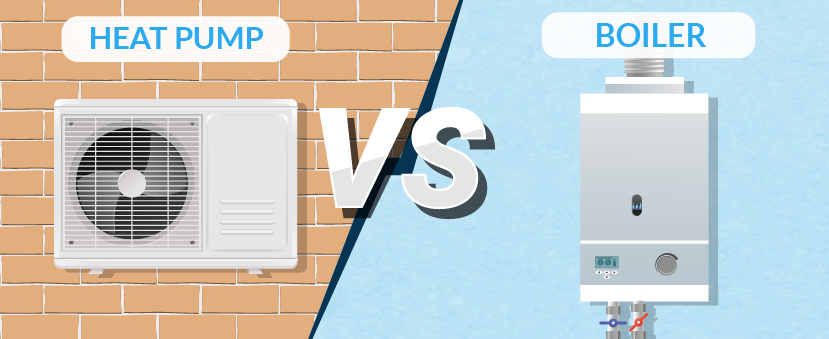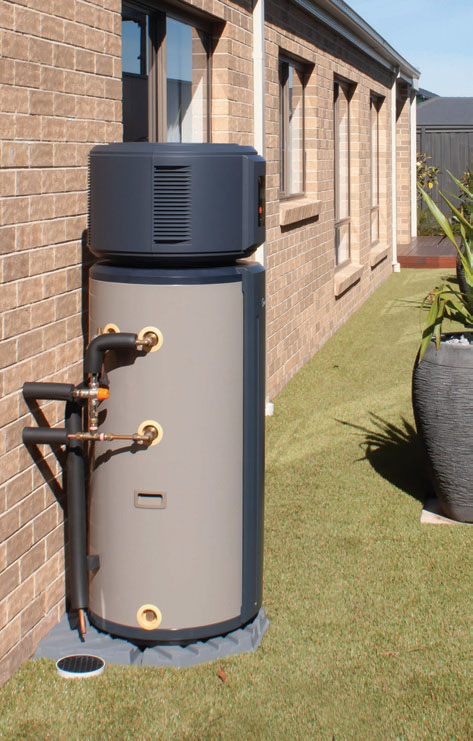
When it comes to selecting a hot water system for your home, the choice can be overwhelming. Two popular options are heat pump hot water systems and gas hot water systems. Each has its advantages and disadvantages, and the best choice for you will depend on various factors, including your budget, energy efficiency goals, and environmental considerations. In this post, we'll explore the key differences between these two systems to help you make an informed decision.
Heat Pump Hot Water Systems
How They Work: Heat pump hot water systems use electricity to transfer heat from the air (or sometimes the ground) to heat water. They operate similarly to a refrigerator but in reverse, extracting heat from the surrounding environment and using it to heat the water stored in a tank

Pros:
Energy Efficiency: Heat pumps are incredibly energy-efficient, often using up to 70% less electricity compared to traditional electric water heaters. This efficiency translates to lower energy bills.
Environmental Impact: Since they use renewable heat from the air, heat pump systems have a lower carbon footprint compared to gas systems. This makes them an excellent choice for environmentally conscious consumers.
Government Incentives: In many regions, including Victoria, rebates and incentives are available for installing heat pump systems, making them more affordable.
Gas Hot Water Systems
Gas hot water systems use natural gas or propane to heat water. These systems can be instantaneous (tankless) or storage-based, with the latter storing heated water in a tank for use as needed.
Cons:
- Energy Efficiency: While gas systems are more efficient than traditional electric heaters, they are not as energy-efficient as heat pump systems. This can lead to higher operating costs over time.
- Environmental Impact: Burning fossil fuels for heating water results in greenhouse gas emissions, making gas systems less environmentally friendly than heat pump systems.
- Availability of Gas Supply: Gas systems require a connection to a gas supply, which may not be available in all areas. Additionally, the price of gas can fluctuate, impacting long-term operating costs.
Making the Decision
When choosing between a heat pump and a gas hot water system, consider the following factors:
- Climate: If you live in a region with mild temperatures, a heat pump system can be highly efficient. In colder areas, a gas system might be more reliable.
- Energy Efficiency Goals: If reducing your carbon footprint and energy bills is a priority, a heat pump system is likely the better choice.
- Budget: Consider both the upfront costs and long-term savings. While heat pumps may have higher initial costs, they can lead to significant energy savings over time.
- Incentives: Check for any available rebates or incentives for installing energy-efficient systems, which can make heat pumps more affordable.
- Property Requirements: Assess the space and installation requirements for each system. Ensure you have the necessary space and ventilation for a heat pump or a reliable gas supply for a gas system.
Both heat pump and gas hot water systems have their advantages and are suitable for different needs and circumstances. By evaluating your specific situation and priorities, you can choose the system that best meets your requirements, providing you with reliable and efficient hot water for years to come.
